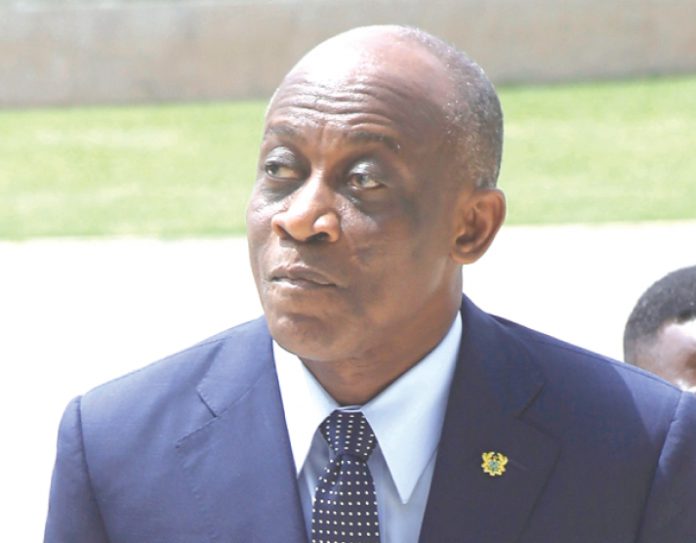Former Finance Minister Seth Terkper has defended the incoming Mahama administration’s plans to convene a national dialogue to chart a sustainable path for Ghana’s economic recovery and address the reliance on International Monetary Fund (IMF) support
Speaking on Joy News’ PM Express Business Edition, Terkper stated that Ghana’s current economic challenges underscore the importance of bringing together experts, policymakers, and representatives from diverse sectors to deliberate on practical solutions.
“It is based again on our experience that when you bring together experts and a mix of experts and other strata of society, you can put before them, in more concrete terms, what is needed to achieve the manifesto promises,” Terkper said, citing the Senchi Economic Forum as a successful precedent.
Lessons from Senchi and the Power of Dialogue
Terkper pointed to the 2014 Senchi Economic Forum as a model for the proposed national dialogue.
He credited Senchi with introducing several vital reforms that guided Ghana’s economic policy during the previous Mahama administration.
“Senchi was what produced smart borrowing. It was where concepts like operationalizing the Stabilisation Fund were discussed and implemented,” he explained.
“The Petroleum Revenue Management Act (PRMA) had been passed in 2011, and by 2013 we started operationalising it. We had to explain to the public that if we did this, the outcomes would be positive.”
The former minister lamented that some of these measures were abandoned or underutilized in subsequent years, contributing to the country’s current economic difficulties.
“We have gone through a period of difficulty that could have been averted if some of these things had been done,” Terkper stated.
Tackling Debt and Domestic Borrowing
Addressing Ghana’s borrowing practices, Terkper noted that during his tenure, borrowing was focused on targeted goals, including addressing the costs associated with the Single Spine Salary Structure.
“We were borrowing through domestic bonds primarily to pay for the Single Spine, not just for other purposes. At forums in places like Ho and Takoradi, we explained to labour that arrears would be paid gradually over time to allow government resources to stabilize,” he recalled.
Terkper claimed that this approach to borrowing, combined with fiscal discipline, enabled the Mahama administration to meet its targets within a two-and-a-half-year timeframe.
Energy Sector Reforms and ESLA
The former minister also highlighted the critical role of public consultation and parliamentary engagement in tackling challenges in Ghana’s energy sector.
He recounted the Mahama administration’s introduction of the Energy Sector Levy Act (ESLA) as a targeted intervention to address energy sector debts caused by disruptions in gas supply from Nigeria.
“When the pipeline from Nigeria was breached, leading to non-supply of gas, VRA and others had to ramp up Independent Power Producers (IPPs).
“We went to the public and Parliament and said, ‘Let us use ESLA.’ It had a three- to five-year lifespan, but it provided the strength needed to address the crisis,” Terkper explained.
The Need for Transparency and Public Understanding
Terkper stressed that any meaningful economic recovery plan must involve clear communication with the public about the trade-offs and benefits of proposed policies.
“You need to explain to the public that if we do this, this will be the outcome. That’s the value of dialogue. It builds trust and ensures that everyone is on the same page,” he said.
ALSO READ:


